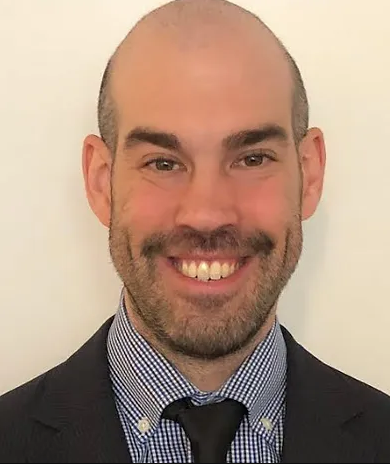If you didn’t realize that ASJA offers discounts on legal services, you aren’t alone.
ASJA members can get help with contracts, licensing agreement, and other legal issues through Joseph Perry, founder of Joseph Perry Law, in White Plains, New York. Perry counsels writers, authors, editors, agents, and other creatives in the book and magazine publishing industries, and works as a literary agent.

When Perry attended the NYU Publishing Institute in 2010, he was adamant that he wanted to be an editor. But during the program, he heard a panel of literary agents and an attorney speak, and a few weeks later, applied to law school, where he found his passion.
I spoke to Perry recently to find out more about the exclusive ASJA member discount he offers, freelance trends he’s seeing and how they’re affecting the writers and authors he works with, and why being a lawyer is like being a fortune teller. His comments have been edited for content and clarity.
Tell me a little about what you do
I help with drafting and negotiating agreements within the publishing industry. I also help writers and publishers review their books and articles for libel, right of privacy, copyright, and trademark concerns. Finally, I help individuals who start their own publishing companies by drafting various publishing-related agreements.
What benefits do you offer ASJA members, and how do you work with them?
I help draft contracts related to members’ writing, such as collaboration, freelance, permissions, work-for-hire, literary agency, and, of course, traditional publishing agreements and related subsidiary rights licenses. I also review articles and manuscripts for potential legal issues.
ASJA members email me, and then we speak over the phone so I can better understand their needs. If they just need a question answered, our engagement ends. If they would like me to provide services, I draft an engagement letter, and we proceed.
What do you charge?
Members receive a 50% discount for consultations. After that, I charge either a flat rate or my hourly fee, depending on the work I do.
How is being both a lawyer and an agent an advantage for your clients?
I am able to see publishing in its entirety. As an agent, I try to get the best deals possible for my clients at the biggest publishers. In my law practice, I encounter writers who want to self-publish, enter into a hybrid publishing arrangement, or publish with a traditional publisher. Because I’m able to see publishing from all angles, I’m able to give more nuanced legal and business advice. For example, I get questions from authors all the time about what publishing path they should pursue. I’m equipped to tell them the pros and cons of self-publishing, hybrid publishing, and traditional publishing.
What difficulties do you encounter?
My job, in part, is to help authors assess risk. Anyone can be sued by anybody, but I try to minimize their risk. Sometimes, authors get frustrated because what they want to write may actually be an issue legally. For example, in a memoir, some authors want to write their authentic story, telling it exactly as it happened, no matter the legal considerations. However, if they write something that a court may consider to be libelous or a right of privacy violation, I might tell them the situation is too high risk to write about or to approach it differently. I’ll work with the writer to strategize and develop a plan for what they can legally write.
What are some things that authors and writers commonly misunderstand or get wrong?
The intricacies of copyright law and what may constitute libel and right of privacy. Sometimes it isn’t enough to just change someone’s name in your book. A lot of times, it comes down to how much detail the writer provides and what exactly they are saying. It may be easy for someone to identify themselves in your book, even if the book is fiction. That’s why I urge my clients who write novels to make everything up. Or if they base characters on real people, to create composite characters and de-identify real individuals as much as possible by changing names, physical characteristics, or geographic details. I also urge clients who write nonfiction to de-identify real individuals in any risky passages.
How should writers tackle contracts?
As soon as you receive a contract, speak to an attorney. There are several items in contracts writers may not catch that can have devastating consequences. I review contracts provision by provision and explain the details so authors know what they are signing. I recommend getting permissions where you can, having insurance, and potentially creating an LLC. These are some things writers can do outside the contract to help themselves.
What should an author expect to pay a lawyer to negotiate a book contract?
I can’t say definitively. It depends on how much you’re paid. I offer flat rates and hourly rates to accommodate different financial situations.
If an author has a literary agent who can negotiate a book contract, do they need a lawyer too?
A literary agent is a great resource. But it helps to have an attorney review the agreement as well for more nuanced issues an agent may not catch, given that many agents don’t have a law degree. I think it helps to have a second set of eyes on your contract.
What if a writer can’t afford a lawyer?
They can contact the Volunteer Lawyers for the Arts.
Should you register everything you publish with the US Copyright Office, even blog posts?
I always suggest registering your work with the Copyright Office.
How have freelance contracts for online news and magazine outlets changed?
Many contracts I’ve reviewed are not writer friendly. I try to get wins where I can, including owning your content, approvals, and creative control if they’re amenable to negotiating. If an outlet is not willing to negotiate, you need to ask yourself some questions. What are you writing about? Is there a real possibility it could be adapted for film, stage, or licensed? If not, then it’s possible that the article is the only intellectual property that will be created, and it will likely have a certain shelf life. What would the byline mean to your career? Each writer’s circumstances are different. If you want to protect your content, then it’s okay to walk away from the deal.
What’s your opinion of ChatGPT from a copyright perspective
The Copyright Office issued recent guidance that said human authorship is required for protection. However, nearly 20 lawsuits have been filed concerning AI, so I’m waiting to see the results to get more clarity before speaking about this subject.
Can you discuss fair use and what that means for writers?
The fair use law allows you to use limited amounts of certain copyrighted materials without permission in certain circumstances. It’s decided on a case-by-case basis. Courts look at four non-exclusive factors: the purpose and character of the use, the nature of the copyrighted work, the amount and substantiality of the content taken, and the effect of the use on the potential market. No one knows if you’re using material fairly unless you litigate it, and no one wants to do that. So, as a lawyer, I have to essentially predict how I think a court is going to interpret it.
So you’re a little bit like a fortune teller?
Exactly. The goal of copyright law is to progress the arts and sciences, so the law doesn’t want you to just copy and paste content into your book for no reason. There has to be a purpose for taking the content. You need to “transform” it. That means you’re adding something new with a different purpose or character, and you’re not substituting it for the original work. You want to make sure you’re only taking what is necessary to make your point and you’re not depriving the copyright owner of income. Education is favored, but there needs to be a purpose for using the material.
Holly Rizzuto Palker is a writer, Literary Mama editor host of the publication’s podcast, This Mama is Lit!, and ASJA board member. A former editor for YourTeen Magazine, Holly covers many topics, though her passion lies in parenting and family relationships. Her articles and essays appear in Parents, The New York Daily News, The Independent, Newsday, Kveller, Huffington Post, Psycom, Grown and Flown, and more. She’s working on a book about her interfaith family. Find her at her website or subscribe to her Substack, @hollyrizzutopalker.

